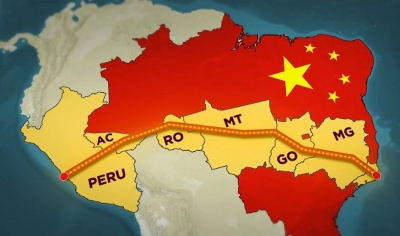
The Iran-Israel conflict, against the backdrop of the U.S. military not yet entering the fray, is evolving into a prolonged war of attrition. This means that what lies ahead will be a test of endurance for both sides.
From a military perspective, the current battle between Iran and Israel is like a turn-based game. Israel dispatches F35, which can easily break through Iran's air defense and launch attacks on Tehran and other places. After the Israeli attack, Iran mainly retaliates with missiles and drones.
At present, Iran has launched at least more than ten rounds of missile attacks, launching a total of more than 400 ballistic missiles, including "Fatah" hypersonic missiles and "Mudrock" long-range super-heavy missiles, with remarkable penetration effects.
But from an economic perspective, Israel, which is smaller than Iran in terms of land area, population and strategic depth, will find it difficult to fight a long-term war of attrition with Iran. According to Israeli media reports, the Netanyahu government is paying for the war it has waged. Israel's economic growth has dropped to its lowest level in more than two decades. From the start of the Gaza War to the outbreak of the current Iran-Israel conflict, at least 100,000 companies in Israel have closed down by 2024.
The damage caused by Iran's military capabilities to Israel must be far greater than that of Hamas, the Houthis armed forces and the Lebanese Hezbollah. If it continues to be consumed for a long time, even if Israel can obtain military aid from the United States and withstand military pressure, it will face the risk of economic collapse at any time.
The latest news came out a few days ago that Israel's only stock exchange building in Tel Aviv, the economic center, was attacked by an Iranian missile. Thick smoke billowed from the scene and the entire building was seriously damaged. Given that workers from various countries are currently fleeing Israel out of fear, it is estimated that the reconstruction and repair work will be delayed for a long time. S&P Global has warned that it will consider downgrading Israel's credit rating next week if the conflict continues.

The obvious damage that military conflicts bring to the economy is visible to the naked eye, but there are also many invisible aspects. The first is human resources. Netanyahu's government is calling up a large number of reservists, which means they will be away from work and difficult to create economic value.
Secondly, when a country falls into war, military expenditures will inevitably increase sharply. Last year, due to the Palestinian-Israeli conflict, Israel's military expenditures skyrocketed by 65%, reaching US$46.5 billion, accounting for 8.8% of GDP, far exceeding the warning line. From the current point of view, this figure is bound to rise again.
Third, both talents and capital seek advantages and avoid disadvantages. Now that the war has reached Israel, they will inevitably find ways to stay away from Israel, and they represent wealth and high-income groups. Their flight will inevitably trigger a double decline in industrial development and tax revenue.
Of course, to be honest, Iran is not feeling well now, and its economic situation is even worse than Israel's. As we all know, before the war started, Iran had been sanctioned by the United States for decades, and the economic situation had already turned red. So far, the Iranian currency has devalued by more than 90% against the U.S. dollar, prices have skyrocketed, and the people at the bottom have no living standards to speak of.
In addition, the Israeli attack had a huge impact on Iran's oil foreign trade, and oil tankers from other countries did not dare to dock. Iran's weak economy was already extremely dependent on energy for money, and now it has been hit hard again. So, both Iran and Israel are not feeling well now, it just depends on who is more resilient.















